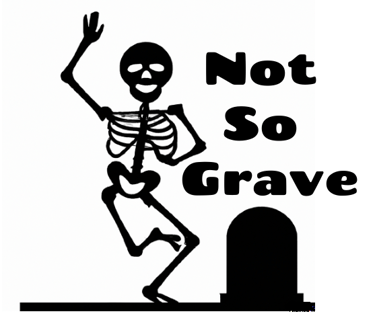Bequeathments
Who Gets Your Stuff When You’re Gone?
Let’s talk about something important—what happens to your belongings after you’ve shuffled off this mortal coil. The formal term is “bequeathment,” but really, it's just about clearly saying who gets what. Simple, right?
Well, mostly simple—but as always with death and money, there’s a little more to it.
First Things First: What Exactly Is a Bequeathment?
Put simply, a bequeathment is the act of leaving personal possessions or assets to someone in your will. It’s your way of ensuring that your favourite things (or even your not-so-favourite things) go exactly where you want them to.
In your will, bequeathments typically fall into two main categories:
Specific bequests: Particular items—your cherished vinyl collection, classic car, jewellery, or even your favourite comfy chair.
Pecuniary bequests: Specific sums of money you leave to individuals, organisations, or charities.
Everything else typically falls into what's called the residuary estate (basically, "whatever's left").
Note that a bequest does not include land (or by extension, property). Therefore you may also see the words 'legacy' or 'devise' used when talking about leaving assets in a will. A devise is a gift by will of real property, such as a house, whereas a legacy refers to gifts of personal property but is more widely used to cover ALL types of gifts, including property, personal items and cash
Why Bequeathments Matter: Keeping the Peace
Clear bequeathments save your loved ones headaches, disagreements, and the awkward scenario of guessing what you really wanted.
Without clear instructions, you risk:
Family disputes (and no one wants to argue over Aunt Joan’s Ming vase).
Assets ending up with people you might not have chosen.
Unnecessary stress for your executors.
How to Make Clear Bequeathments in Your Will
Here’s how you keep things straightforward:
1. Be Specific
Rather than saying "my favourite necklace," describe items clearly—“my pearl necklace bought in 1984.” Clearer descriptions = fewer arguments.
2. Identify Beneficiaries Clearly
Full names and relationships help your executors distribute assets precisely. (“John Smith, my eldest nephew” is clearer than just "John.")
3. Consider Alternatives
What if your first-choice beneficiary predeceases you? It’s wise to name alternatives.
Common Types of Bequeathments:
Personal Items (Chattels)
This includes jewellery, furniture, art, books, memorabilia, etc. They might not be valuable, but sentiment matters. Clearly state who you want to have them.
Cash Bequests (Pecuniary Gifts)
These are fixed amounts of money left to named individuals or charities. For example, £5,000 to each grandchild, or £1,000 to a favourite charity.
Residuary Bequests
This is your "everything else" clause—often left to your spouse, children, or charity, divided into percentages.
Bequeathing to Charity: Good Deeds and Tax Benefits
Bequeathing money to UK charities isn’t just generous—it also comes with potential tax perks:
If you leave 10% or more of your net estate to charity, your inheritance tax rate drops from 40% to 36%. (Thanks, HMRC!)
Clearly state the charity's full registered name and charity number to ensure your wishes are followed exactly.
Unusual Bequeathments: Getting Creative
Want your ashes turned into fireworks? Or your house left to your beloved dog (true story)? It’s all doable—but speak clearly with a solicitor. Creative bequests are fun, but they must be practical, legal, and enforceable.
Avoiding Common Mistakes
Don’t rely on verbal promises: Put everything clearly in writing.
Review your will regularly: Marriages, divorces, new family members, or even changes in personal taste (that Elvis figurine collection?) mean regular updates are wise.
Bequeathments and Tax
Inheritance tax applies if your estate exceeds £325,000 (the nil-rate band), or up to £500,000 if you're passing on your main residence to direct descendants (which can then be up to £1,000,000 for married couples and if you are the last surviving spouse and you are gifting to your children). Bequeathments to your spouse, civil partner, or UK charities are typically exempt from inheritance tax, helping preserve your assets for loved ones. See the section on Inheritance Tax for more information.
Final Thoughts: It’s Your Stuff—Have Your Say
Your possessions, whether valuable or sentimental, tell your life story. A clearly drafted bequeathment means your story continues exactly as you wish, protecting family harmony and providing clarity at a difficult time.
Bottom line? Don’t leave things to chance. Sort your bequeathments now—your loved ones will genuinely appreciate your clarity (and your old record collection).
